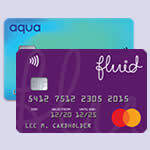If your credit card has told you it is increasing the interest rate, sometimes you can simply reject this change and stay on the old rate. You don't have to repay it all immediately But you have to act fast to do this, so this article explains what you need to know. It also applies to catalogues, store cards and accounts such as Paypal. There are two situations in which a credit card can … [Read more...]
Articles about credit cards
Credit cards can be really useful but they can also be dangerous - if you just tap the card it can be too easy to run up bills that will take you many years to clear. So how can you make the best use of them? The articles here look at
make sure you get the benefits - practical steps you can take so that the banks don't make huge profits from you;
what's new and what's changing with credit cards in Britain?
too much credit card debt - how can you tackle it fast?
How to get refunds from catalogues and credit cards
Have you had a credit card, store card or catalogue where your credit limit was too high? So high that the monthly repayments were hard to manage and you got into more debt? For some people the limit was too high at the start. Others were originally given an OK limit, but the lender kept increasing it. or it was OK while the 0% offer lasted, then unmanageable. You may have a good … [Read more...]
Has a lender like Next or Barclaycard cut your credit limit?
When a lender like Next or Barclaycard slashes your credit limit, it can feel like an insult, especially when you’ve been managing your account responsibly. Here are some recent stories I have heard, and a look back at some older examples. These aren't the only two lenders that do this! Next cutting limits This has happened to a number of Next customers recently. In one case, a customer … [Read more...]
“Persistent debt – Halifax want me to make higher credit card payments”
Mrs X was happy when Halifax told her that they were cutting the interest rate on her credit card - down from 32% to 15%. But just two months later, Halifax sent another letter saying she must make higher "Recommended Payments" or she can't use the card any more. She says: Halifax want me to pay at least £102 a month, about £20 a month more than the minimum. They say this will clear the … [Read more...]
“Will a credit builder card improve my score?”
Four million people in Britain have a credit card specifically aimed at people with a bad credit rating. These cards have interest rates of 30-70%. A standard interest rate on a normal credit card is about 20-28%. Brands include Vanquis, Capital One, Aqua, Ocean, Marbles, Zable and 118. Some normal credit card lenders like Barclaycard have a specific bad credit product available. They are all … [Read more...]
Zable – a “credit builder” card to avoid [updated]
Recent Updates 2025 Zable takes over the Thimbl card and increases interest rate Thimbl used to be a credit builder card provided by Vanquis. In 2025 the brand was bought by Lendable and is now managed through their Zable brand. This change came along with an increase in the "representative" rate on the Thimbl card from 34.5% to 48.9%. 2024 You can't transfer a Zable balance to another … [Read more...]
Barclaycard cuts minimum payments – this may cost you a lot
In April 2024, Barclaycard has told many customers that it will be setting lower minimum payments on their accounts from July. From a poll I ran on Instagram, Barclaycard has informed about 90% of cardholders. It looks as though this change is going to be across the board, affecting everyone. The messages are going out by email, letter or text. Look out for the communication if you haven't yet … [Read more...]
Affordability complaints for two credit cards from a lender
My article on credit card affordability explains when you should make a complaint and has a free template letter to use. Some people have two credit cards from the same lender. Or two catalogue accounts from the same lender. The most common lenders this affects are: Newday - brand names include Aqua, Marbles and Fluid; Capital One - some people have been given two Capital One cards. … [Read more...]
Maxed out credit cards & only able to pay the minimum
"I have three credit cards, all maxed out. I am only paying the minimum amounts each month as I can't afford more. What are my options as this will take forever and cost a lot in interest?" A lot of people are in this situation with cost of living price rises leaving you with no spare money to make overpayments. Especially if a 0% balance transfer has ended and you can't get another … [Read more...]
Barclaycard – more big cuts to credit limits in 2021
In April 2021, Barclaycard is cutting a lot of customers' credit limits. Some of the reductions are dramatic. Here is what one Debt Camel reader said: Today I received a letter from Barclaycard informing me my credit limit is being reduced from £5,000 to £250 in 1 months time. My balance is zero and has been for several months. Not very happy about this as it’s there for emergencies etc and … [Read more...]









